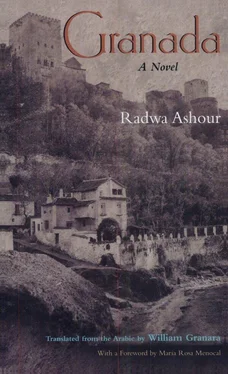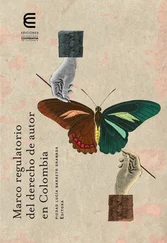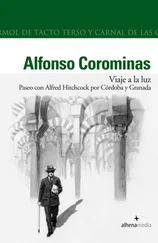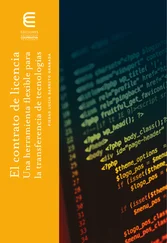Radwa Ashour - Granada
Здесь есть возможность читать онлайн «Radwa Ashour - Granada» весь текст электронной книги совершенно бесплатно (целиком полную версию без сокращений). В некоторых случаях можно слушать аудио, скачать через торрент в формате fb2 и присутствует краткое содержание. Год выпуска: 2003, ISBN: 2003, Издательство: Syracuse University Press, Жанр: Современная проза, Историческая проза, на английском языке. Описание произведения, (предисловие) а так же отзывы посетителей доступны на портале библиотеки ЛибКат.
- Название:Granada
- Автор:
- Издательство:Syracuse University Press
- Жанр:
- Год:2003
- ISBN:9780815607656
- Рейтинг книги:5 / 5. Голосов: 1
-
Избранное:Добавить в избранное
- Отзывы:
-
Ваша оценка:
- 100
- 1
- 2
- 3
- 4
- 5
Granada: краткое содержание, описание и аннотация
Предлагаем к чтению аннотацию, описание, краткое содержание или предисловие (зависит от того, что написал сам автор книги «Granada»). Если вы не нашли необходимую информацию о книге — напишите в комментариях, мы постараемся отыскать её.
Granada — читать онлайн бесплатно полную книгу (весь текст) целиком
Ниже представлен текст книги, разбитый по страницам. Система сохранения места последней прочитанной страницы, позволяет с удобством читать онлайн бесплатно книгу «Granada», без необходимости каждый раз заново искать на чём Вы остановились. Поставьте закладку, и сможете в любой момент перейти на страницу, на которой закончили чтение.
Интервал:
Закладка:
At five years old Maryama would sit inside the chest and hold the objects gently, as her mother cautioned her to do. Sitting in the chest was as pleasant an occasion as a feast day that only came after long periods of waiting, and that only she alone was allowed to do. She would go to great lengths to tell her neighborhood friends whatever popped into her head about the contents of the chest, and they would believe her because they could never see what was inside, since it was always locked with an old heavy metal latch.
After Hasan proposed to Maryama and read the opening verse of the Quran with her father, her bridal trousseau was added to the chest: three new dresses, a pair of leather slippers, a striped scarf and veil, two blouses, four pairs of knickers, a pair of heavy stockings, and a woolen cloak. Her mother folded them and placed them neatly inside with the other things. She also placed in it a small Quran in a green leather binding with the words “Holy Quran” inscribed on the cover and set in an octagonal star surrounded by a floral design that looked like a rectangular gold necklace, creating a subtle frame of two golden lines in which the green of the binding contrasted nicely with the border of engraved hexagons.
A cart drawn by a team of sturdy mules transported the trunk, Maryama, her family, and a few of their neighbors across Granada and over to Albaicin where a beaming and glowing Hasan awaited his new bride. When she did arrive, everyone flashed smiles of joy and called out their best wishes for a happy life together. But no one from the household nor any of the neighbors shouted a single ululation on account of Abu Mansour’s objection that Saad conveyed to Hasan. Hasan agreed and passed it on to his mother, sister, and grandmother who then informed all the women of the neighborhood.
“Saad,” asked Abu Mansour, “are you going to hold a wedding in Abu Jaafar’s house while the villages of Alpujarra burn and their inhabitants are slaughtered by the hundreds every day?”
Saad lowered his head at a loss for what to say.
“Will the joyous sounds of celebration ring out from Abu Jaafar’s house as the freedom fighters in Alpujarra mourn their dead?” Abu Mansour was long past the point of anger. He now merely sat in front of his bathhouse with a downcast expression, speaking only occasionally, and letting his assistants tend to the bathhouse chores.
“You’re a sensible and decent fellow, Saad, so do what you think is right.”
He went into the bathhouse for a few moments before coming out, as if he couldn’t stand to be in a place that was closed off by a roof and four walls.
When Hasan told his mother and grandmother what Abu Mansour had said, it was his mother who responded. “What would the girl’s family say, a wedding without music and singing?”
“Her family and neighbors as well as our own neighbors will be coming. How shall we greet them and celebrate with them?” his grandmother added.
“Slaughter the sheep and prepare all the food fit for such an occasion, but no need for ululations and singing,” answered Hasan. The two women were not happy with Hasan’s decision, but they passed the word around the neighborhood nonetheless. Some of the neighbors agreed with Abu Mansour while others felt that if there weren’t to be any kind of celebrations to warm their hearts and souls, they would all die of grief. But finally, Umm Jaafar spoke up and had her say. “We will celebrate the marriage and we’ll all come together and share in Hasan’s joy. We won’t ululate or sing, but we will be happy.” She stood up and turned her back as she spoke these words, so that the neighborhood women wouldn’t see the tears trickling down her cheeks she couldn’t control no matter how hard she tried.
Only Abu Ibrahim knew that his daughter’s wedding would be an unforgettable event throughout Granada and Albaicin. When Hasan told him what Abu Mansour had said he nodded in agreement. “He’s right, but I wish it were you or I who had said it first.” At that very moment he made up his mind, cursing the Castilians to hell with their laws and orders, to sing at his daughter’s wedding feast, knowing in his heart of hearts that in so doing something magic would come out of it.
On the day of the wedding, the men sat in the outer courtyard of Abu Jaafar s house as Saad, Naeem, and Maryama’s brothers passed around platters of food and distributed small flasks of an almond drink Umm Jaafar had prepared. When the guests finished the meal and the young men took away the leftover food, Abu Ibrahim stood up.
“Come here, Hasan. I want you to sit next to me.” Then, raising his voice, he addressed the crowd:
“May I have your attention for just one moment? I’d like to present this gift to my daughter’s husband.”
The men grew silent and looked over toward Abu Ibrahim who had absolutely nothing in his hands. They wondered what the present could be. Abu Ibrahim flashed a broad smile. “Before we begin,” he shouted, “let’s pray to the memory of the Prophet.” A deafening silence fell over the courtyard as the men craned their necks to get a good look at this most unusual and unexpected offering of a gift. He raised his voice and began to chant:
How gallant a band of men riding their noble camels to the
presence of the Merciful Lord,
They passed their time remembering the traces of the beloved
and came to the realization of the mysteries of the Quran.
They inherited the Hashemite Prophet, chosen as the most
honorable of the Adnani Arabs,
they mounted the Buraq of Love in the sanctuary of Hope,
and traveled by night
to the Jerusalem of Light and Proof.
Their bodies were a sky at whose door they rang, and its doors
were opened,
and two eyes appeared to them,
one eye whose port smiled when it saw its sons in Paradise,
to its left another eye whose tears trickled down when it saw
them
in the blaze of fire.
The guests were startled and confused, like plowmen stunned by a sudden torrent of rain after long years of drought. They wondered what brought on the uncontrollable shivers running through their bodies and the sudden pallor of their faces. Abu Ibrahim went on with his litany to the Benevolent Prophet, the “light of our eyes,” “God’s chosen one,” the “exalted one,”“the most noble and honorable of Arabs.” The wedding guests sat dumbstruck, not knowing whether they had fallen into the snare of nostalgia or if a demon from amongst the supporters of the Castilians had descended upon them disguised as an angel of heaven. But how could this be in the house of Abu Jaafar?
Abu Ibrahim then chanted the story of King Muhalhal Ibn El-Fayyad with Khalid Ibn El-Waleed. He sang about the Prophet and how one day he was praying with the people when he began to cry as he told them that an enemy was coming to wage battle against them, a massive army of a hundred thousand horsemen, fifty thousand foot soldiers, and forty thousand slave mercenaries.
“What do you say? Muhammad asked them.”
Abu Ibrahim said, “The Companions answered:
“‘O, Muhammad! We are your sharp sword, your far-reaching spear, your crushing rock, your wounding arrow, your racing war horse. We will stand by your side until death.’
“Then the Prophet of God, peace be upon him, sent for Khalid.
“‘O, Khalid, what keeps you from us? My brother, did you not hear Bilal’s call to prayer from the Grand Mosque? May God show you mercy!
“Khalid began to cry, and this moved the Prophet deeply. Then Khalid spoke:
“‘O, Messenger of God, for three days now afire has not kindled in my house, I must play with my three sons and three daughters until they go to sleep to distract them from the hunger that threatens to consume them.”’
Читать дальшеИнтервал:
Закладка:
Похожие книги на «Granada»
Представляем Вашему вниманию похожие книги на «Granada» списком для выбора. Мы отобрали схожую по названию и смыслу литературу в надежде предоставить читателям больше вариантов отыскать новые, интересные, ещё непрочитанные произведения.
Обсуждение, отзывы о книге «Granada» и просто собственные мнения читателей. Оставьте ваши комментарии, напишите, что Вы думаете о произведении, его смысле или главных героях. Укажите что конкретно понравилось, а что нет, и почему Вы так считаете.












